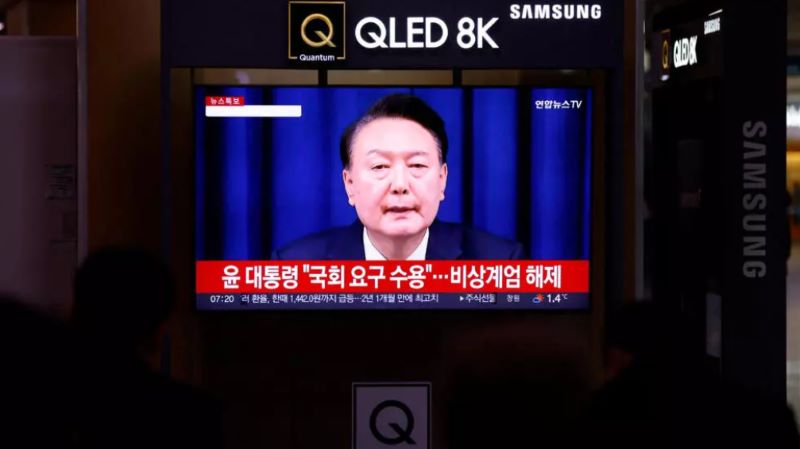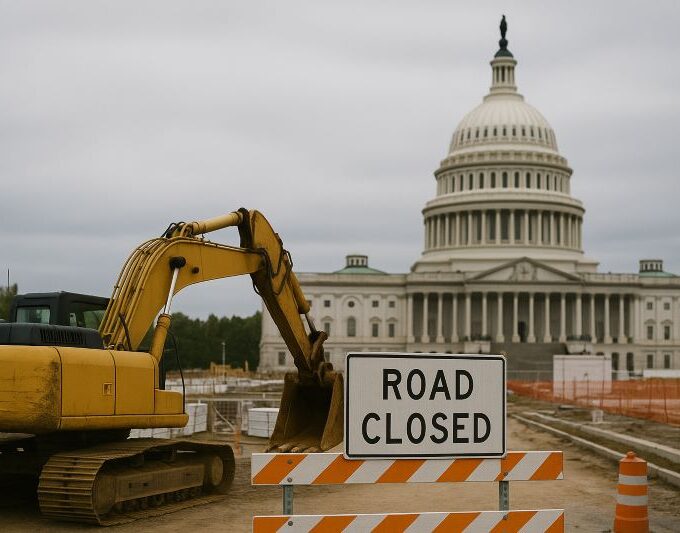Recently, South Korean President Yun Seok-yul declared martial law throughout the country, a sudden move that has triggered dramatic shocks in the domestic and international political arena. This decision has not only exacerbated the political crisis in South Korea, but has also caused deep concern for the U.S. government. The political future of Yun Seok-hyul has become uncertain, and the political turmoil in South Korea poses a significant challenge to the stability of the U.S.-South Korea-Japan Trilateral Security Agreement.
Political turmoil: martial law triggers serious political crisis
In a televised speech on the evening of October 3, 2024, Yun Seok-yul declared martial law for the whole country, citing the paralysis caused by the opposition party’s obstruction of government operations. He stated that the purpose of martial law was to protect “free Korea” from North Korean forces and to remove the so-called “hostile forces”. However, the decision immediately triggered strong reactions from all sides.
Hundreds of heavily armed soldiers attempted to break into the National Assembly building after the martial law was declared in an attempt to prevent the parliament from passing a resolution against martial law. Inside the parliament, staff and members of parliament fought hard, blocking the doors with tables and chairs, and some members even climbed through windows to enter the parliamentary hall, and eventually succeeded in passing a motion against martial law. This scene shocked the South Korean public and the international community, and brought Yoon Seok-yul’s political legitimacy into unprecedented question.

The declaration of martial law directly exacerbated the confrontation between the government and the opposition. Opposition parties were quick to speak out, accusing Yun Seok-yul of “trying to subvert the democratic system” and calling for his resignation. At the same time, hundreds of people took to the streets in protest, calling for the president to step down. To add insult to injury, opposition parties filed an impeachment motion in the National Assembly, accusing Yun of unconstitutional behavior and risking his impeachment if the motion is passed in the next 72 hours. With the political situation deteriorating dramatically, the Korean political scene has entered an unprecedented crisis.
U.S.-Korea relations: U.S. deeply concerned about situation
Yoon Seok-hyup’s sudden move has not only created a furor at home, but also caused deep concern for the U.S. government. Since taking office, Yoon has been a key ally of the U.S. strategy in the Asia-Pacific region, and has played a particularly important role in trilateral security cooperation. The U.S.-South Korea-Japan Trilateral Security Agreement is seen as an important component of strategic deterrence against China and Russia, and is one of the signature foreign policies promoted by the Biden administration. However, Yun Seok-yul’s political crisis has made the future of this strategy uncertain.
U.S. Deputy Secretary of State Kurt Campbell expressed “grave concern” about the situation in South Korea and emphasized that the U.S. alliance with South Korea is “indestructible. Campbell said, “We fully hope and expect that any political disputes will be resolved through peaceful means and in accordance with the rule of law.” Despite U.S. attempts to de-escalate the situation, concerns within the U.S. government about the situation in South Korea are still evident.
U.S. officials have noted that Yun Seok-yul has been a key promoter of the Trilateral Security Agreement and that his impeachment or ouster could have far-reaching implications for U.S.-South Korea-Japan cooperative relations. The implementation of the Trilateral Security Agreement, especially the enhancement of military cooperation, response to the North Korean nuclear threat and strategic deterrence against China, could face serious challenges. Yoon Seok-woo also actively supports the Washington Declaration, promotes cooperation with the United States in the nuclear field, and firmly supports Ukraine’s stance against Russian aggression. These policies have made South Korea an important strategic pillar of the U.S. in the Asia-Pacific region, but the political turmoil in South Korea now makes the sustainability of these policies uncertain.

However, opposition parties, which gained a legislative majority in South Korea’s new election, are skeptical of Yun Seok-yul’s close ties with the U.S. and Japan, and favor a more moderate policy toward the DPRK. If opposition parties continue to dominate South Korean politics, South Korea’s relationship with the United States could undergo a fundamental change, which would have a direct impact on the implementation of the Trilateral Security Agreement (TSA).
U.S. military presence in South Korea not directly affected, but uncertainty increases
Despite the political turmoil in South Korea, the day-to-day operations of U.S. military forces in South Korea have not been directly affected. The U.S. Pentagon says the mission and force protection posture of U.S. forces in South Korea has not changed. The U.S. military presence of nearly 29,000 troops remains routinely deployed. However, while the military presence of U.S. forces has not been directly affected by the political turmoil, Pentagon and State Department officials have emphasized that the uncertainty of the situation poses a challenge to U.S. strategy in the Asia-Pacific region, especially given the importance of the U.S.-South Korea alliance in confronting the threat of North Korea and responding to the rise of China.
Conclusion
Yoon Seok-yeol’s martial law was not only the trigger for South Korea’s domestic political crisis, but also casts a shadow over the future of the U.S.-South Korea-Japan trilateral security agreement. The complexity of the current situation demands that South Korea restore political stability as soon as possible in order to continue to maintain its strategic partnership with the United States and Japan. While the U.S. government has stated its support for South Korea, it remains highly concerned about how the political situation in South Korea develops in the coming days. If Yoon Seok-yul is impeached or pressured to resign, South Korea’s foreign policy and trilateral security cooperation could undergo a profound transformation.
As political uncertainty continues to spread in South Korea, the future of U.S.-South Korean-Japanese trilateral security cooperation will depend on the rebalancing of political forces in South Korea and whether Yoon Seok-yul can weather the current crisis. As the global geopolitical situation grows increasingly complex, South Korea’s political direction will have far-reaching implications for regional security, and international concern about the stability of democracy in South Korea has intensified.












